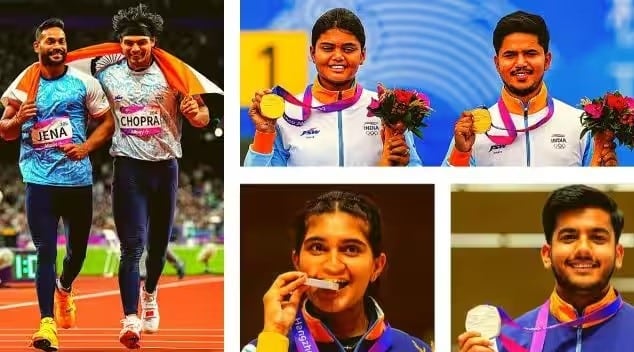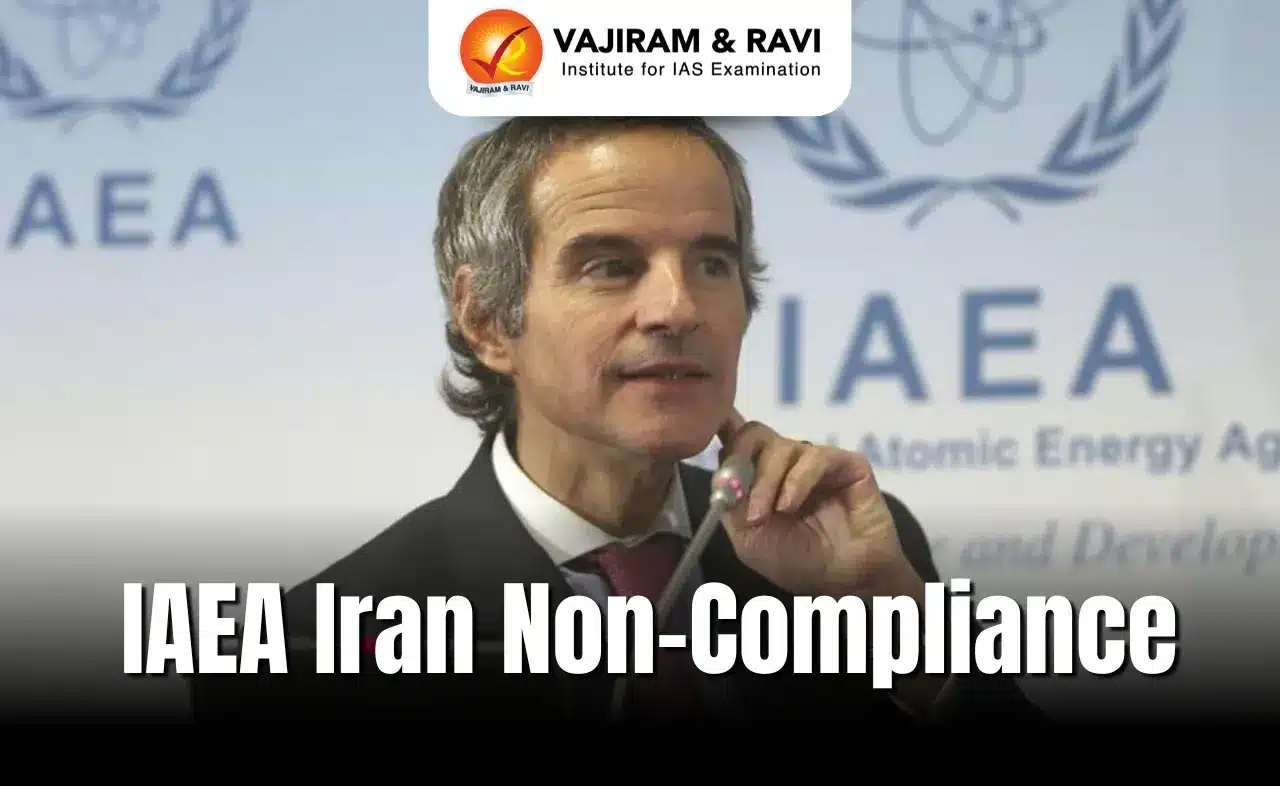What’s in today’s article?
- Why in News?
- Key Takeaways from the India’s Performance at the 19th Asian Games
- The Reason for India’s Overall Performance Improvement
- An Illustrative Case is Archery
- Similar Stories in other Sports Too
Why in News?
- India finished with a record haul of 107 medals at the Hangzhou (China) Asian Games, its best ever after the previous best haul of 70 medals (16 gold) at the Jakarta 2018 Asian Games.
- India has won 28 gold, 38 silver and 41 bronze medals and there are no events scheduled for India on the final day of the event on October 8.
Key Takeaways from the India’s Performance at the 19th Asian Games:
- Team medals in shooting indicate a new depth of talent: Gains in compound archery is good news since the event is likely to be included in the Olympics.
- The track-and-field domination: It added to India’s image as a growing sporting nation.
- The badminton gold and table tennis bronze: This has forced China to acknowledge India’s existence in a discipline in which they have long taken their dominance for granted.
- 5 events where India saw a dip: These were tennis, bridge, kurash, wushu and table tennis.
- But in table tennis, the bronze won by Sutirtha Mukherjee and Ayhika Mukherje (after defeating the strong Chinese contenders) was actually one of the most significant among the 107 medals.
- Doesn’t translate into a medal rush at the Paris Olympics next year: This is because a bunch of medals in Hangzhou have come in events that aren’t in the Olympics and in many, the level of competition will increase several folds.
The Reason for India’s Overall Performance Improvement:
- The government funding of the Olympic disciplines, primarily under the Target Olympic Podium Scheme.
- With no scarcity of financial resources, the quality of coaches, sports science experts and exposure trips abroad, have added up to improvement.
An Illustrative Case is Archery:
- The government spent Rs 24 crore in 2022-23. The federation tied up with NTPC in a deal worth Rs 115 crore over a period of five years, with an additional Rs 15 crore for one-time support to build infrastructure.
- Approximately Rs 2 crore was spent on hiring coaches from South Korea and Italy, getting sports performance and neuro-science experts from the US as well as getting 50 Indian coaches “exposed” to international seminars.
- Another Rs 3 crore was spent on national camps, where psychologists, nutritionists, strength and conditioning experts, were employed along with using video analysis software.
- This investment paid dividends. From just two archery medals in 2018, the count went up to nine in 2023.
- The compound archers completed a clean sweep of all the five gold medals on offer.
- Archers Jyothi Surekha Vennam and Ojas Pravin Deotale, with three gold medals each, were the most successful athletes of this Games.
Similar Stories in other Sports Too:
- In 2018, India won medals in 18 different sporting disciplines, which went up to 22 in 2023.
- At both editions, the top two contributions came from athletics and shooting, but Hangzhou saw an increase from 20 to 29 in athletics while shooters brought home 22 medals in comparison to just 9 the last time around.
○ These two events alone accounted for a combined increase of 22.
- In shooting, the addition of team events pushed the medal tally up but it also showed the improving depth in various categories as Indian shooters went toe-to-toe with China here.
- Athletics was always anticipated to win medals, but several outstanding performances stand out.
○ For the first time in Asiad history, India had a women’s javelin gold through Annu Rani, a men’s 3000-m steeplechase winner in Avinash Sable.
○ While badminton accounted for just an increase of 1 medal, it was a historic showing by Indian shuttlers as they finally ended the wait for a first ever gold, thanks to Satwiksairaj Rankireddy and Chirag Shetty.
Q1) What is the Target Olympic Podium Scheme?
TOPS (Target Olympic Podium Scheme) is a flagship program of the Ministry of Youth Affairs and Sports started in 2014 (and revamped in 2018 to establish a technical support team) to provide assistance to India’s top athletes.
Q2) What is the history of Asian Games?
The first-ever Asian Games were held in New Delhi in 1951. Asian Games were regulated by the Asian Games Federation from 1951 to 1978. Since 1982, the Olympic Council of Asia has regulated the Asian Games.
Source: Asian Games: From 70 medals to a record 107 — how and why the needle moved
Last updated on June, 2025
→ UPSC Notification 2025 was released on 22nd January 2025.
→ UPSC Prelims Result 2025 is out now for the CSE held on 25 May 2025.
→ UPSC Prelims Question Paper 2025 and Unofficial Prelims Answer Key 2025 are available now.
→ UPSC Calendar 2026 is released on 15th May, 2025.
→ The UPSC Vacancy 2025 were released 1129, out of which 979 were for UPSC CSE and remaining 150 are for UPSC IFoS.
→ UPSC Mains 2025 will be conducted on 22nd August 2025.
→ UPSC Prelims 2026 will be conducted on 24th May, 2026 & UPSC Mains 2026 will be conducted on 21st August 2026.
→ The UPSC Selection Process is of 3 stages-Prelims, Mains and Interview.
→ UPSC Result 2024 is released with latest UPSC Marksheet 2024. Check Now!
→ UPSC Toppers List 2024 is released now. Shakti Dubey is UPSC AIR 1 2024 Topper.
→ Also check Best IAS Coaching in Delhi






















